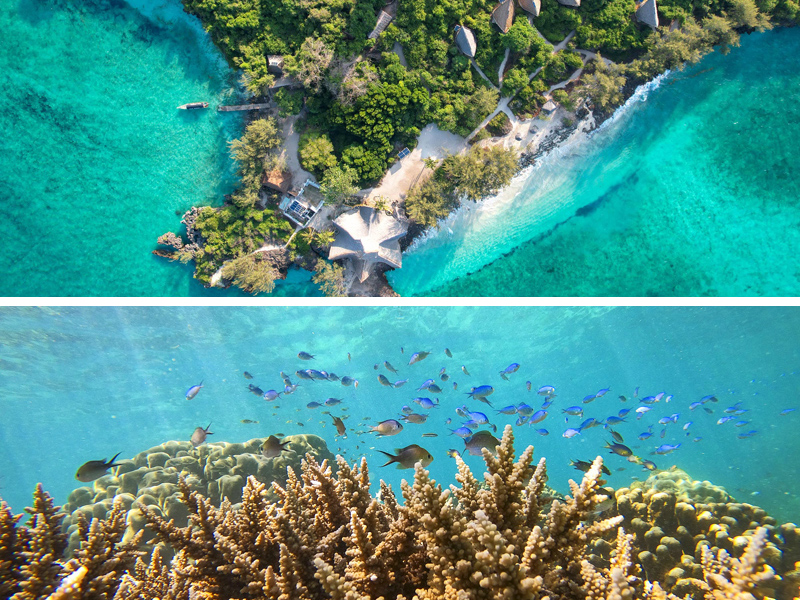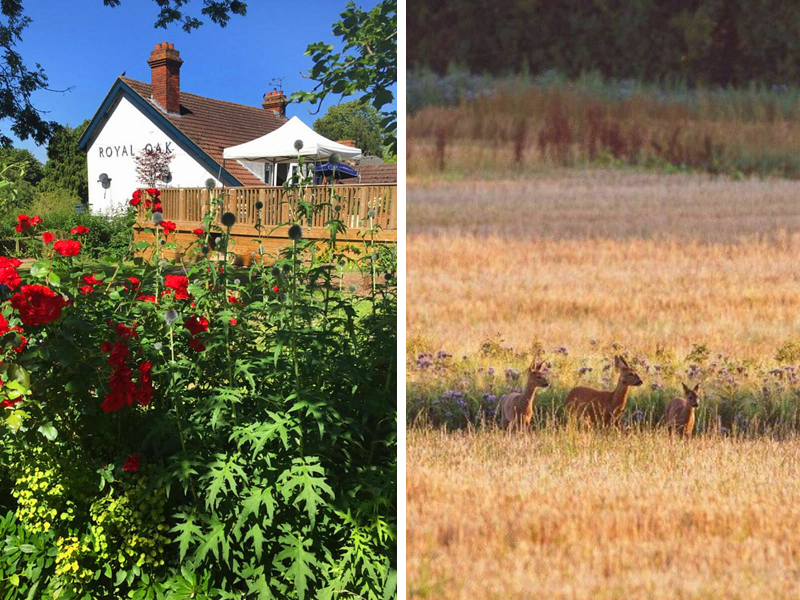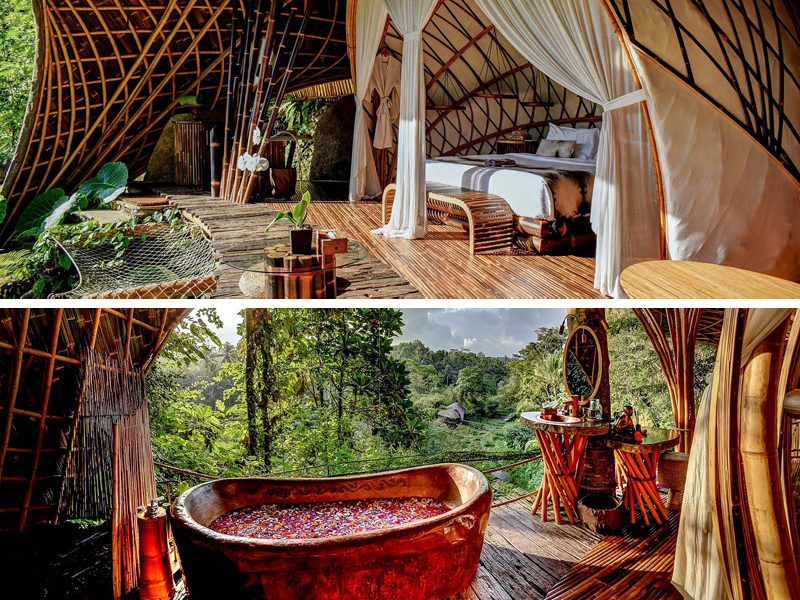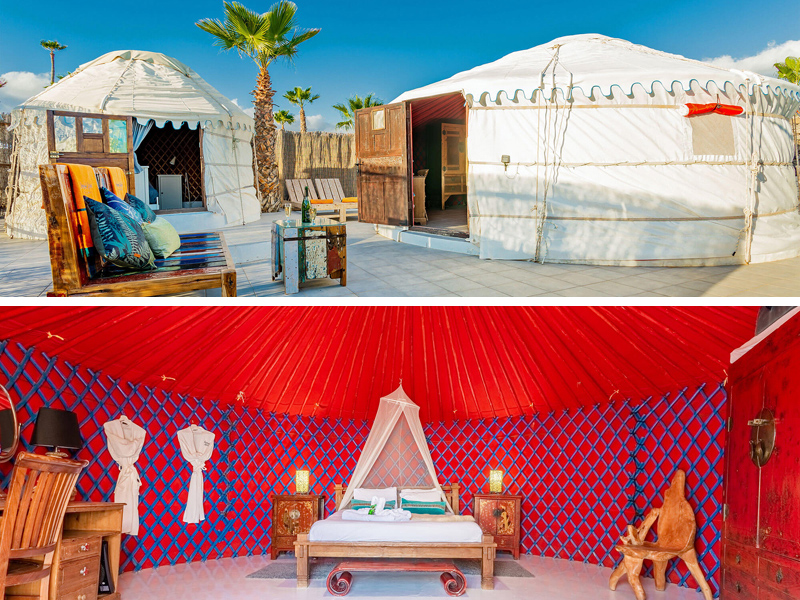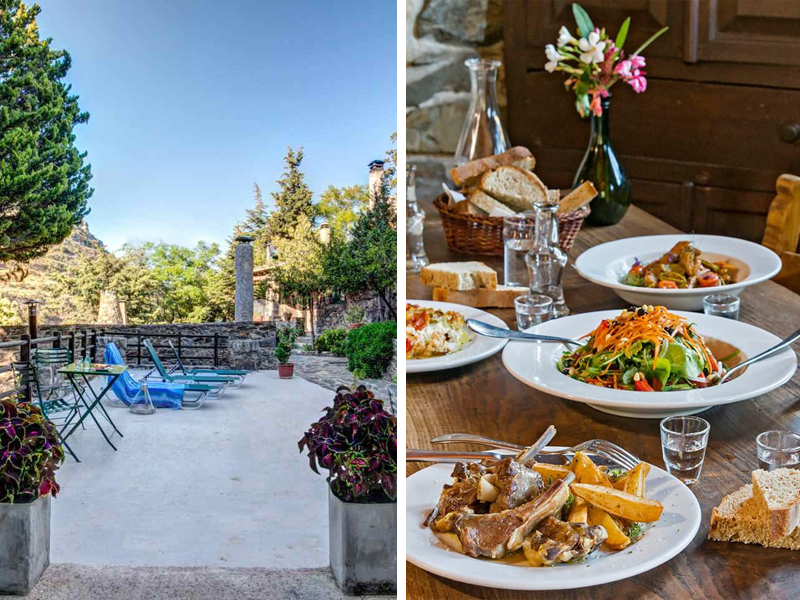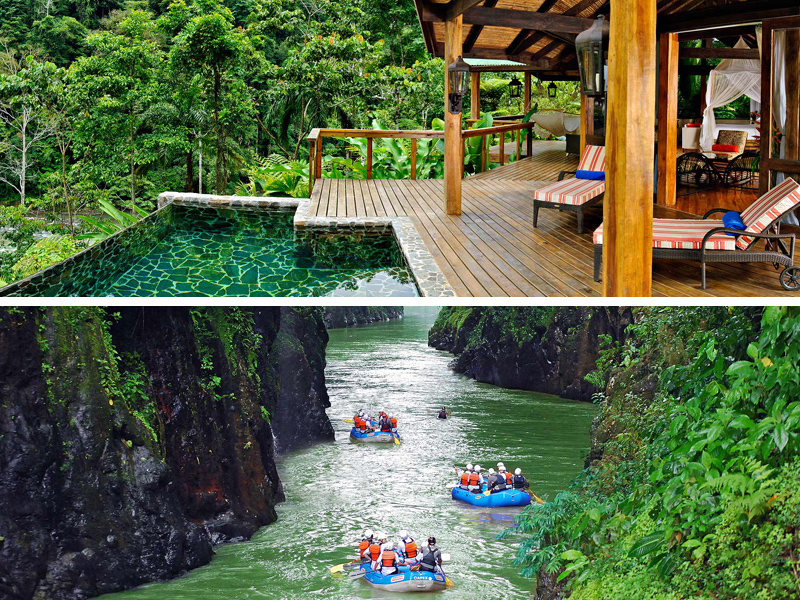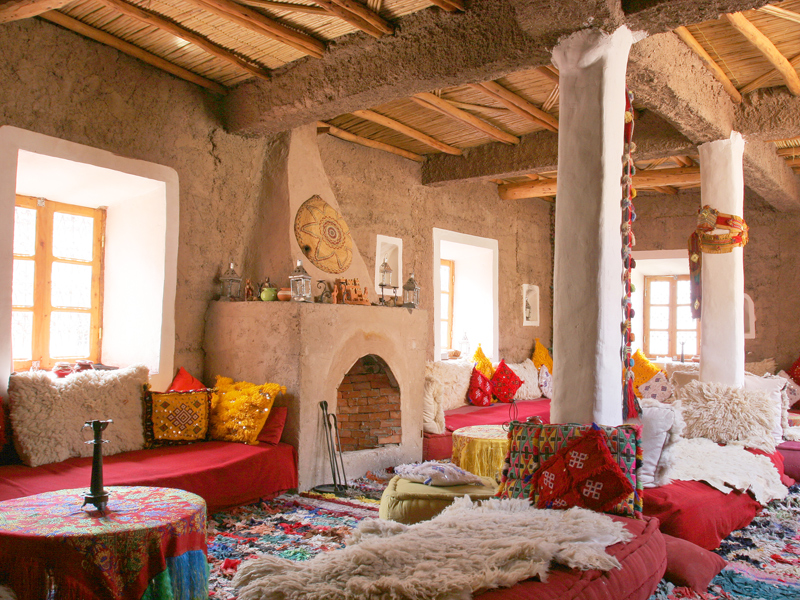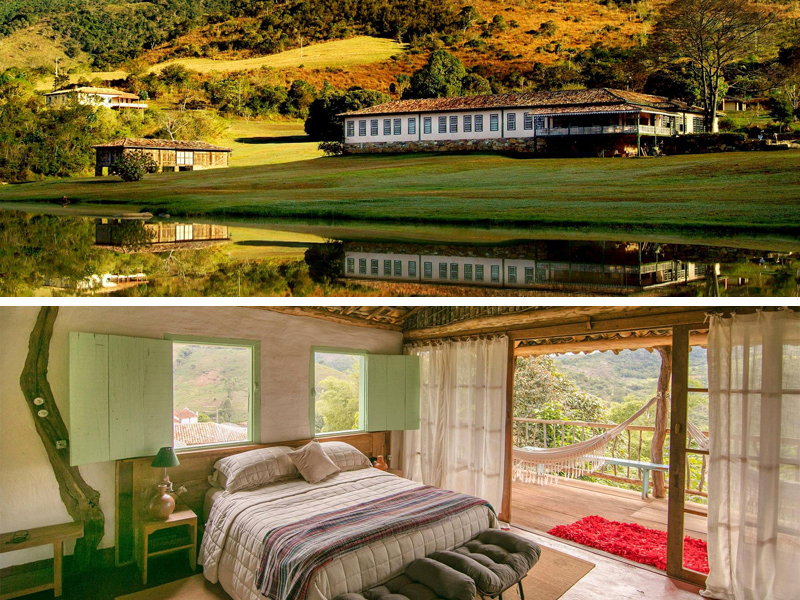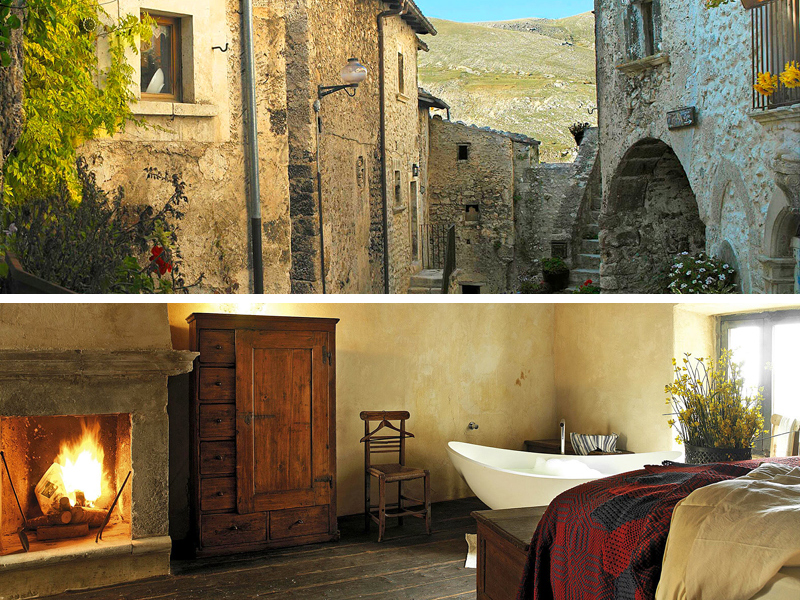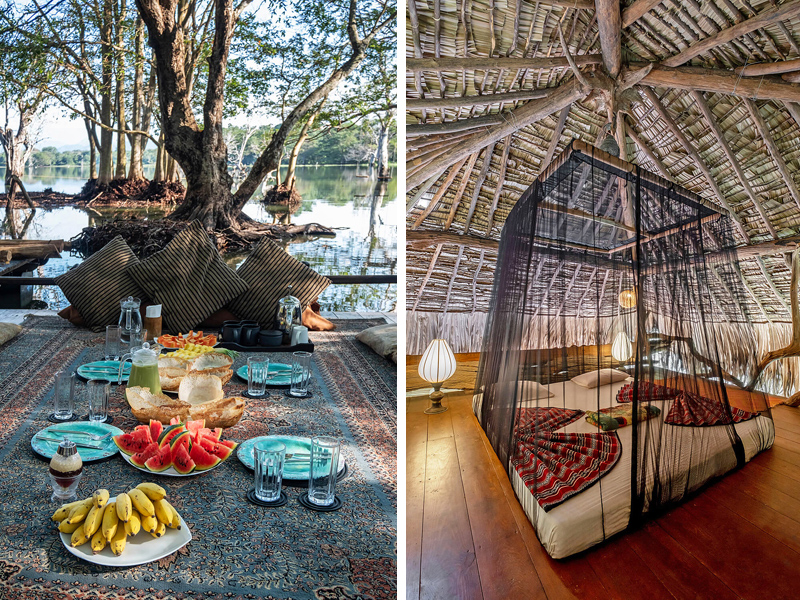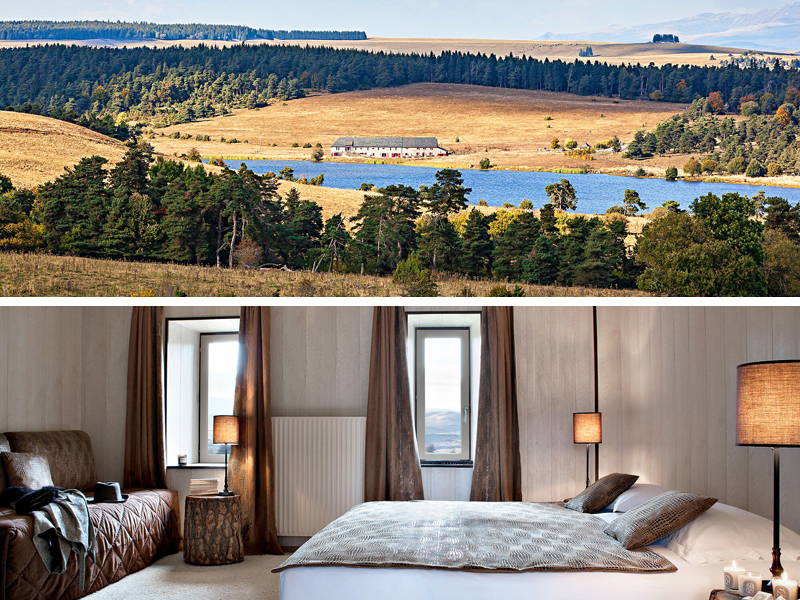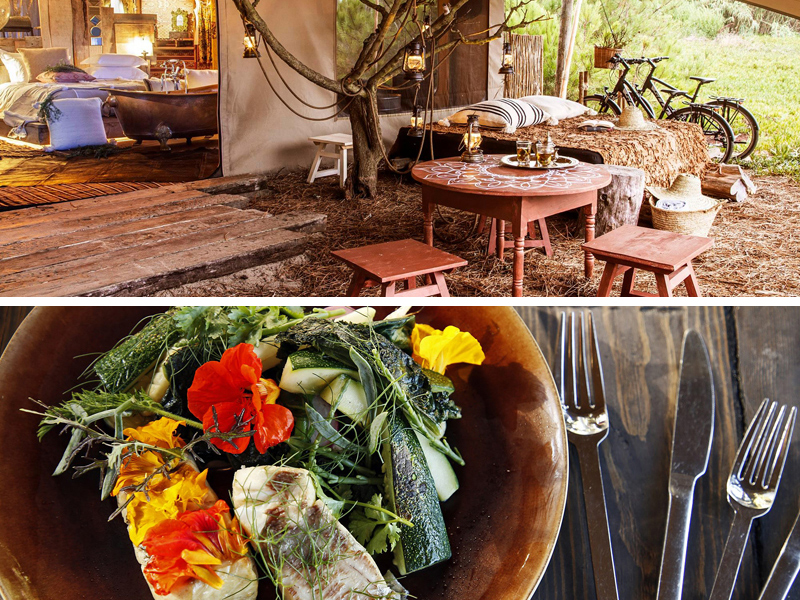
By Lucy Richardson, Editor
Introducing the flagbearers of eco-tourism. These are the hotels that care deeply about the planet. Some are carbon neutral or built entirely from recycled materials. Others are socially sustainable, investing in local people in order to give back to the community. All are run by hoteliers passionate about making tourism and conservation work together, so that we can all strive towards holidaying more responsibly.
1 Chumbe Island, Zanzibar
Chumbe Island Coral Park is a leader in marine conservation. The waters of this paradise island are a protected sea park, established to preserve the kaleidoscopic coral reef that clusters beneath the surface. For environmental reasons, scuba diving is not permitted, but you can snorkel to admire its beauty. The island’s seven huts are built entirely of local woods and recycled materials, and the eco bathrooms have compost loos, solar-heated water, and soaps made at a nearby woman’s co-operative. The whole place is carbon neutral. Go on nature walks to see rare wildlife or intertidal walks to explore rock pools and seagrass meadows exposed by low tides. This is a perfect example of how an eco-tourism resort can support conservation and research.
2 Helen Browning’s Royal Oak, UK
Helen Browning is an organic farming pioneer. When she’s not busy being CEO of the Soil Association, she and her partner Tim head up the Royal Oak, a family-friendly eco-pub and farm in rural Wiltshire. 75% of the food served in the restaurant is grown or reared organically on site, and you can buy their produce from the little farm shop. In a building next door are the 12 bedrooms, each decorated with farm-themed art and upcycled pieces. Guided safaris take you around the 1500-hectare farm, offering a chance to spot birdlife (corn bunting, skylarks, kites) and learn about the sustainable farming and rewilding processes used on the land. Bring the kids – it’s fun and educational: a winning combo.
3 Bambu Indah, Bali
Run by the founders of the world-acclaimed Green School, Bambu Indah is inspirational in eco-design. Constructed from bamboo, the 18 fantastical wooden houses are open to the jungle, with views stretching across the Ayung river gorge. Each is completely unique – one a treehouse, another an antique Javanese bridal house. The resulting look is like an enchanting fairy-tale garden. Home-grown rice, vegetables, herbs and flowers supply the kitchen with produce, other ingredients are sourced locally. Only natural fertilizers are used in the gardens, pool water comes from a well, banana leaves double up as plates, papaya stems as straws. Ingenious.
4 Finca de Arrieta, Lanzarote
Finca de Arrieta is a self-sufficient eco-resort set beside a sweeping sandy bay on Lanzarote’s north-east coast. A cluster of Mongolian yurts and volcanic-stone cottages are spread out among fruit trees and stone pathways. Wind turbines and solar panels provide power and hot water, and friendly animals roam free. All accommodation is set up for self-catering, with full kitchens, an honesty shop, and free-range chickens for DIY egg collecting. The freedom and proximity to the beach (300m) make it popular with families, and kids get their kicks from the solar-heated pool, the playground and the trampoline.
5 Milia Settlement, Greece
Once a WW2 hideout, now a beautiful settlement of 14 stone houses, Milia is a remarkable restoration project set in the folds of Crete’s White Mountains. Created by two eco-minded locals, with the help of EU funding, this mini Cretan village is a true mountain hideaway where you can reconnect with nature and disconnect from the grind. From its elevated position above the Topolia Gorge, you get wide mountain views and winding trails around peaks. Healthy, organic, homegrown food is served in a communal dining room, lit by solar power. Livestock has been reintroduced, terraces replanted, and water piped in from a nearby stream. There are no cars up here, and no mobile signal; the serenity is intoxicating.
6 Pacuare Lodge, Costa Rica
Welcome to your ultimate adventure retreat. Lying deep in Costa Rica’s pristine wilderness, Pacuare Lodge is only accessibly by raft – along hair-raising white-water rapids. The palm-thatched lodges are open to the jungle to allow natural ventilation. All are lit by candles and most have 360-degree rainforest views. Electricity comes from hydroelectric turbines, water is solar heated. There’s a conservation fee for all visitors in order to manage tourism sustainably, so funds are invested in the forest and local community projects. You’ve got the jungle at your fingertips here: hikes, zip wires, birdwatching, waterfalls, and visiting the Cabecar indigenous community are all possible.
7 Douar Samra, Morocco
Douar Samra is, quite literally, sky high in its ambitions. Run by a committed conservationist, this restored douar (house) forms part of a traditional Berber village, perching 2000m above sea level in Morocco’s Toubkal Massif. The view here is phenomenal. Owner Jacqueline used traditional construction methods and materials to renovate the earthy red-clay house, calling upon the help of local villagers to ensure it remained sympathetic to Berber style. Fully committed to the community, she funds a weaving project and trains staff from the village, ensuring that hotel profits go towards supporting the local economy.
8 Ibiti Project, Brazil
Ibiti Project is a community initiative aimed at protecting local habitats and providing a sustainable source of income for local people. The 5000-hectare private reserve, 3.5-hours north of Rio, incorporates a dense rewilded landscape of caves, valleys and waterfalls, with native fauna species having been reintroduced over time. At the centre is an 18th-century farmhouse, split into elegant guest suites, while a handful of other accommodations sit elsewhere on the reserve. You can explore by horseback or go on tours with local guides. There’s a weekly cultural programme of film screenings and live music, and two restaurants serve healthy, homegrown food (no beef for environmental reasons).
9 Sextantio Albergo Diffuso, Italy
A visit to Sextantio Albergo Diffuso is like stepping back to a forgotten time. A passionate team of conservationists worked wonders in restoring this medieval mountain hamlet in the Gran Sasso mountains of central Italy. They saved crumbling buildings – once occupied by shepherds, weavers and livestock – from extinction by transforming them into 5 rustic homes, now with 27 cave-like rooms. Studies were conducted with cultural institutions to bring the past to life, so interiors are a nod to times gone by (sloping floors, blackened fireplaces). In the vaulted candlelit restaurant, you’ll dine on traditional food that Santo Stefano’s farmers might have eaten centuries ago.
10 Banyan Camp, Sri Lanka
The entirety of Banyan Camp is built from recycled materials. Furniture is fashioned from pieces of driftwood, walls are made from wine bottles, and one room is a converted Mercedes truck. All three lodges are open-air, lit by lanterns and cooled by sea breezes. There’s no carbon footprint here. Around you is an unexplored wilderness of twisted banyan trees, jungle and a serene lake, on which canoe safaris take you up close to bathing water buffalo and tropical birdlife. Meals – all vegetarian – are included, and dinners are served beneath the flickering glow of candlelight. A sustainable hotel in every sense of the word.
11 Instants d’Absolu Ecolodge, France
Instants d’Absolu is all about reconnecting with nature. This 300-year-old farmhouse turned ecolodge nestles on a lake edge in Auvergne’s pristine wilderness. Admiring and preserving the surrounding environment are key to its Zen-inspired philosophy; you’re here to rediscover the forgotten luxuries of solitude and unspoilt wilderness. There’s limited WiFi or mobile reception, so you’ll spend days discovering ancient trails by foot, bike or horseback. Heating and hot water in the 12 eco-chic rooms comes from wood sawdust, and the fare served in the restaurant (half board) is largely home-grown in the garden and greenhouse.
12 Areias do Seixo, Portugal
Here’s an example of how style and sustainability can go hand in hand. Areias do Seixo, a beachfront green hotel just 45 mins along the coast from Lisbon, shows us how upmarket eco-design is done. Nature pervades everything here; wood, glass and stone form part of the striking interior design, cork is used for insulation, and the wild surroundings of pine trees and dunes form part of a protected ecological reserve. An eco-clock monitors energy and water use, fruits and vegetables are home-grown in the organic garden, and activities are geared around sustainable living: fishing/mussel harvesting, gardening and cookery classes.
How to go green on your next holiday
It is very possible for conservation and tourism to work together if we all travel consciously. Staying at sustainable hotels is a good start, but there are other steps we can take to limit our impacts:
- Go away less often but for longer. This will give you a broader, more rounded experience of new places and cultures, and it gives you the chance to properly switch off. Of course, it requires fewer journeys too, which is a big bonus for the planet.
- Take your time. Make the journey part of the experience by choosing lower-emission transport routes. It’s a far more immersive way to travel, allowing you to actually see new places rather than bypass them by flying over. Have a look at our no-fly collection for inspiration.
- If going slow isn’t an option, look for greener choice flights on Skyscanner, which are lower-emission flight routes.
- Get under the skin of a destination. Choose to stay in places that offer immersive experiences, be it guided tours of protected parks or cultural experiences with locals. This way you’ll gain a more enriching insight into local life, and your tourist dollar goes towards supporting it.
- Get off the beaten path. Overtourism is destructive, and it’s no fun seeing sights with swarms of other visitors. Instead, seek out under-the-radar places. Not only will it give you a more authentic experience, but it also relieves the burden from popular destinations, bringing tourism benefits to new places.
- Never be afraid to ask hotels about their eco-credentials. Enquire about their plastic policy, check whether they use renewable energy sources, ask if they provide financial contributions for conservation efforts. But if you don’t have time or energy for all that, rest assured that we’ve already asked our featured properties all the pertinent questions when visiting them, so you don’t need to.
